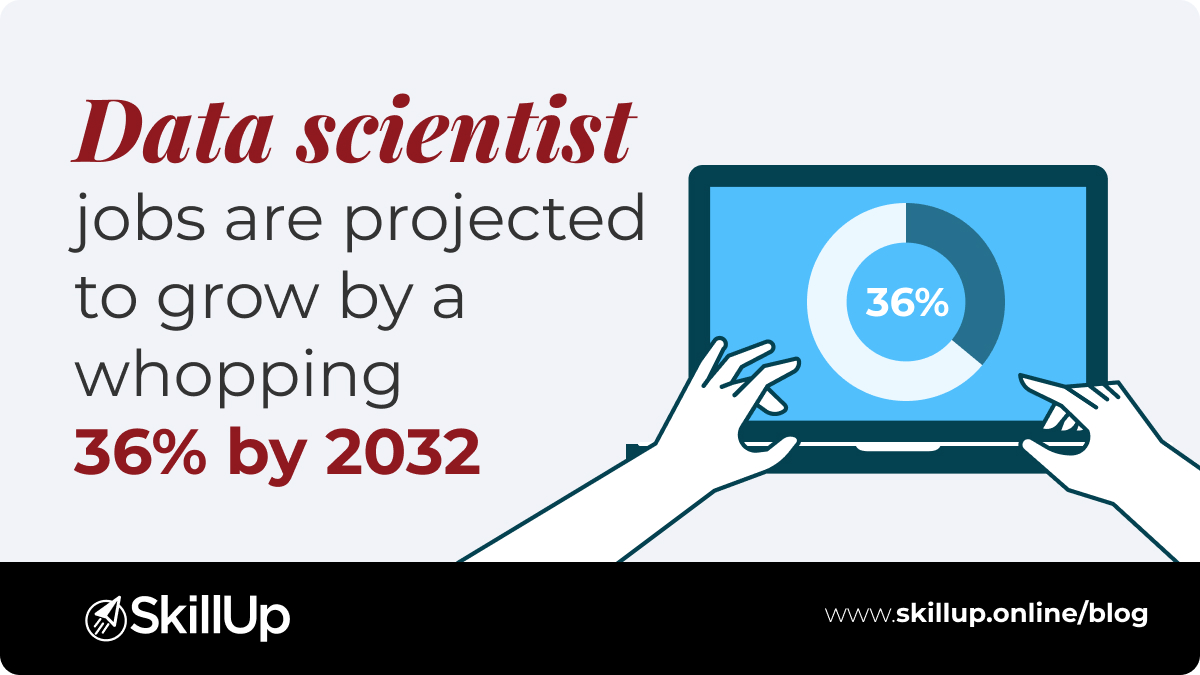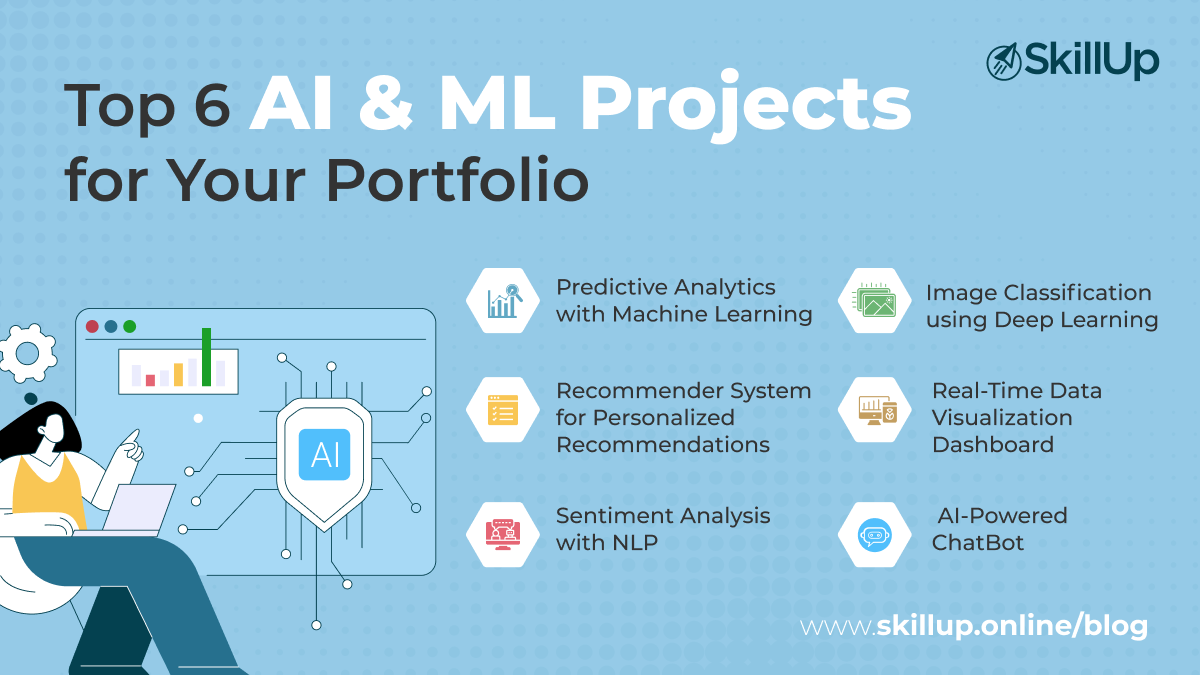There are three top careers these days: software developer, health care aides, and data scientists. In fact, according to Glassdoor, data scientist has been the number one job in the United States for the last three consecutive years.
Furthermore, according to the U.S. Bureau of Labor Statistics, the rise of data science needs will create 11.5M job openings by the year 2026. Furthermore, depending on the nature of the job and the field, most data scientists have the potential to make a six-figure salary.
So, if you love numbers, computers, and math, then you definitely have a rewarding and fulfilling career as a data scientist.
In this article, we will highlight the top 10 career paths for aspiring data scientists.
What is Data Science, Exactly?
Before we dive into the top career paths for data scientists, let’s provide a little background about what data science is, and why it’s so important today.
In short, data science involves obtaining valuable insights and information from data. Data can be qualitative versus quantitative data, implicit versus explicit data, and making analyses based on that data. These analyses will typically be used by executives or customers to make informed business decisions.

The Top 10 Data Science Career Paths
Here are the top 10 career paths for data scientists:
1. Data Architect
Data architects are typically responsible for building complex data systems and ensuring that all business data solutions and design analytics applications are all built for performance. Data architects also ensure that the data is accurate and available.
The average annual salary for a data architect is approximately $135,000.
2. Business Intelligence Specialist
Business Intelligence specialists design and develop data strategies. The goal of these strategies is to assist businesses in finding the information they need to make more informed and intelligent business decisions.
Business Intelligence specialists are also extremely data- and tech-savvy, and are comfortable with using intelligence tools or applications to help them design and develop custom analytics applications to help businesses understand their data systems.
The average annual salary for a business intelligence specialist is approximately $90,000.
3. Data Analyst
In addition to building, designing, and developing data systems, data scientists can also be data analysts. Data analysts will collect, analyze, and interpret large amounts of data to provide quality, accurate analyses to businesses.
The average annual salary for a data analyst is approximately $80,000.
4. Data Engineer
Data engineers are extremely tech-savvy individuals who focus on processing real-time data. Data engineers also help make data readable and easier to interpret for data analysts.
The average annual salary for a data engineer is approximately $150,000.
5. Machine Learning Specialist
Machine Learning (ML) is an important trend in the business world today. ML specialists are typically responsible for researching new data approaches and algorithms.
ML specialists are essentially computer programmers but with a focus on artificial intelligence (AI). They specifically focus on programming machines to perform tasks, such as a self-driving car.
The average annual salary for a machine learning specialist is approximately $140,000.
6. Business Analyst
Business analysts have a deep knowledge of various business processes and areas of business intelligence. Although this field is less technical than some of the others we have mentioned, this role involves serving as a liaison between executive teams and IT.
Business analysts also have a good grasp on data visualization tools and data modeling. Many of their responsibilities are similar to those of a data analyst.
The average annual salary for a business analyst is approximately $70,000.

7. Marketing Analyst
Today’s marketing teams are all about “big data”. Therefore, many look to data scientists and data analysts for help with setting up website or application analytics, A/B tests, and other reporting techniques to ensure that businesses are exploring the right market opportunities and investing in avenues and mediums that make the most business sense.
The average annual salary for a marketing analyst is approximately $55,000.
8. Applications Architect
This expert tracks the behaviors and patterns of various applications used within a business. In addition to tracking these behaviors, the applications architect will also analyze how applications communicate and interact with one another and their users.
The average annual salary for an applications architect is approximately $130,000.
9. Infrastructure Architect
This professional ensures that all business systems are functional and that are successfully support the development of new technologies and system requirements.
The average annual salary for an infrastructure architect is approximately $125,000.
10. Data Mining Specialist
By using statistical software, data mining specialists will “mine” data by researching and modeling various relationships. Then, the data mining specialist transforms that data into insights to help businesses make more informed, intelligent decisions.
The average annual salary for a data mining specialist is approximately $60,000.
Data Scientists Are in Demand
All in all, nearly every industry and field is looking for expert data scientists. The majority of companies—both large and small—see the benefits and value of accurate, “big” data to not only make solid business decisions but to also better serve their customers.





